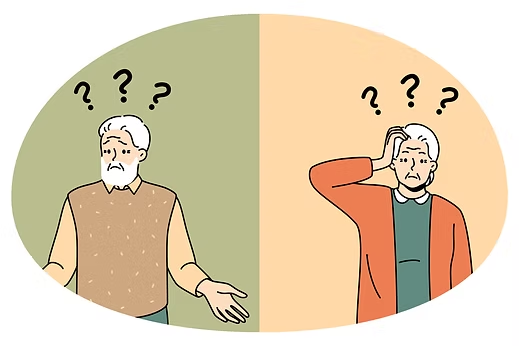Reflective Entry 1 – A Challenging Encounter at a Bus Stop(Using Gibbs' Reflective Cycle
1. Description.
While on vacation in London with my children, we were waiting at a bus stop when I observed a woman who seemed bewildered and disoriented. She began shrieking, implying that she was going through a mental health crisis or was in great distress. I felt compelled to assist her, so I approached her quietly to give support. However, my attempt to engage exacerbated the issue, as she became more irritated and raised her voice even more. My children, plainly terrified, started crying, and I felt overwhelmed. In that time, I made the difficult decision to remove myself from the situation in order to prioritise my children's mental safety.
2. Feelings.
At first, I was concerned for the woman and wanted to help her. I assumed that taking a calm approach would assist to de-escalate the issue. However, when she reacted adversely, I felt helpless and rather terrified. My children's worry left me divided between feeling responsible for the woman and my own family. Later, I felt guilty about going away, wondering if I had done enough. At the same moment, I felt happy that my children were secure and undamaged.
3. Evaluation.
One positive part of the event was that I noticed someone in need and attempted to assist, reflecting my natural desire to help, which is consistent with principles necessary in health and social care. However, my strategy lacked preparedness. I did not properly examine the hazards or investigate other options for getting assistance, such as notifying nearby onlookers or contacting emergency services. The woman's anxiety worsened, and my presence unknowingly added to her aggravation. Furthermore, the emotional impact on my children demonstrated the need for greater judgement in high-pressure situations.
4. Analysis.
This event made me appreciate the necessity of situational awareness, especially when balancing personal safety and the duty of care. Professionals in health and social care are educated to maintain empathy while also setting appropriate boundaries. In retrospect, I lacked the resources to assist someone with potential mental health problems in a public setting. My activities were motivated by good intentions but were not backed by relevant knowledge or a plan of action. According to Gibbs (1988), reflection can help discover gaps between aim and impact. Schön (1983) also emphasises the role of "reflection-in-action", which requires practitioners to think rapidly and adjust – a talent I now recognise I need to improve.
5. Conclusion.
I learnt that good intentions are insufficient in uncertain situations, particularly those concerning mental health. Support must be provided in a manner that ensures everyone's safety. I also realised that often the best support is indirect, such as alerting trained staff, particularly when vulnerable people (like my children) are around. I realise the value of being emotionally prepared and knowing how to respond in crisis situations.
6. Action Plan.
If I find myself in a similar scenario again, I will take a closer look at the surroundings before acting. I would avoid direct interaction and instead contact appropriate agencies, such as police or mental health crisis teams. I would also try to keep my children calm by relocating them to a safe place before taking action. In my professional development, I hope to attend mental health awareness or de-escalation training to strengthen my response in such situations.
References (Harvard Style)
Gibbs, G. (1988). Learning by Doing: A Guide to Teaching and Learning Methods. Oxford Polytechnic.
Schön, D. A. (1983). The Reflective Practitioner: How Professionals Think in Action. Basic Books.

This comment has been removed by a blog administrator.
ReplyDeleteThanks for sharing a insightful experience!
ReplyDelete• It clearly shows a real insight of the situation by openly sharing your feelings, concerns, guilt, helplessness, safety, care and relief.
• It shows self-awareness, personal development and demonstrates growth.
• You genuinely caring about helping others while also recognising the importance of children’s safety. It’s a great reminder that good intentions alone aren’t always enough, especially in complex situations involving mental health.
• Your plan to seek training and improve your knowledge shows strong self-awareness, competence and professionalism.
I would be interested to ask what made you think the women was in distress? Was it her body language, appearance or speech?
Kind regards
Nazia Bi
Hi Nazia, thank you for your thoughtful feedback!
DeleteTo answer your question — it was a combination of her body language, appearance, and speech. She seemed disoriented, was shouting loudly, and her movements were erratic, which made it clear she was in distress.
Kind regards,
Deocilia Cravid
It was an immense pleasure, reading this detailed blog where I was able to benefit from such well articulated work with a high level of detail.
ReplyDeleteHowever I would like to ask was it harder to apply the system of gibbs reflective cycle in a scenario like yours where the emotions are high and possible to even interfere with ones thoughts and feelings?
Great Job !
Reflecting on your experience it shows that the more information and awareness of a situation you have will lead you to make the correct decision in the course of action to be undertaken in order to help some one in stress
ReplyDeleteThis reflection is emotionally compelling and uses Gibbs’ model effectively to unpack a difficult situation. To strengthen its academic rigour, the analysis should include more theoretical depth, such as crisis response or de-escalation strategies. The evaluation would benefit from clearer discussion of alternative actions that could have been taken. Some sections, like the analysis and conclusion, could be made more concise for clarity. Additionally, integrating concepts like ethical responsibility or situational risk would enhance the reflection’s critical depth. Including one or two more up-to-date references would also improve the overall academic quality.
ReplyDelete